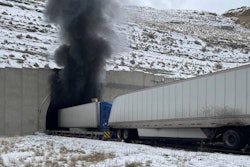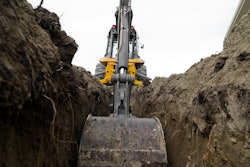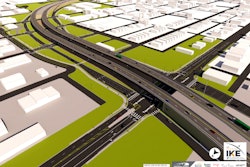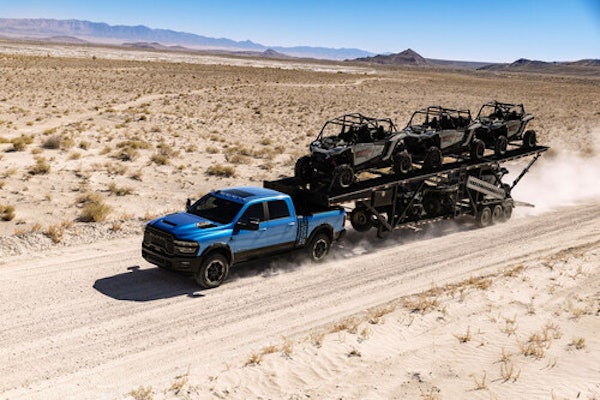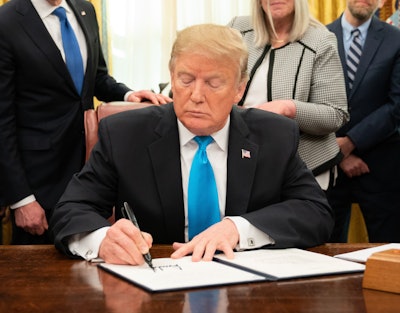
Editor's note: President Donald Trump announced the afternoon of April 9 that, effective immediately, he had authorized a 90-day pause on the recently implemented tariffs and lowered the reciprocal tariff to 10%. In a post to his social media platform TruthSocial, President Trump said over 75 countries had reached out to representatives of the U.S. to negotiate solutions to the issues given as rationale to implement the tariffs.
Associated Equipment Distributors President and CEO Brian P. McGuire said in a statement shortly after the tariffs were paused:
“President Trump’s pause on his reciprocal tariffs provides an opportunity for everyone to reassess the situation. AED encourages continued negotiations that result in free and fair trade, and in long-term certainty for the equipment industry and our customers. The time is now for our leaders in Washington to focus efforts on enacting tax policies that incentivize capital investment and economic growth rather than imposing trade barriers on our key partners.”
New tariffs from the U.S. government on countries around the world have thrown the construction industry into yet another uncertain political situation, with many groups saying their members are already feeling the effects. Meanwhile, some manufacturers are already putting plans in place to protect themselves.
What’s Happening?
On April 2, a series of responsive tariffs were issued by the Trump administration, with the stated goal of rebuilding the U.S. economy and strengthening the country’s international economic position.
A press release from The White House said a 10% tariff on all countries went into effect April 5, made possible by Trump invoking authority under the International Emergency Economic Powers Act of 1977. Additional higher tariffs on the countries with which the United States has the largest trade deficits take effect April 9. Click here for the original release, including breakdowns of tariff exemptions.
The White House press release stated the following:
“Studies have repeatedly shown that tariffs can be an effective tool for reducing or eliminating threats that impair U.S. national security and achieving economic and strategic objectives.”
Construction Association Members Face the Effects
Many construction and contractor associations have issued statements on the tariffs, with some calling for exemptions to protect contractors from their negative effects.
Associated General Contractors of America Chief Economist Ken Simonsen said, “Falling business and consumer confidence, along with rising costs from tariffs, are causing projects to be delayed or canceled. These challenging conditions are leading to less widespread job growth than previously.”
AGC warned the tariffs could trigger retaliatory measures from other countries and asked the Trump administration to reduce or eliminate tariffs as soon as possible “to limit harm to contractors, other businesses, and consumers.”
Associated Builders and Contractors Vice President of Legislative & Political Affairs, Kristen Swearingen issued a statement to Equipment World saying the group understands the long-term goals of the tariffs and recognizes some countries “don’t play by the rules.” Swearingen also acknowledged ABC members were feeling the effects of the tariffs already.
“ABC members rely on U.S. and global supply chains to build everything from power plants and airports to schools, hospitals and roads, and ABC has encouraged them to have strategies in place like locking in prices, adding escalation clauses to contracts and regaining cash ahead of the implementation of tariffs,” said Swearingen. “ABC members are experiencing project start delays and receiving materials price increase notifications from suppliers, both due to tariffs. These results follow the simple law of supply and demand: the cost for construction services will rise, which will lead to fewer construction projects.
“Uncertainty surrounding tariffs and their impact on materials prices has made it difficult for decision-makers to commit to large capital investments. New or increased tariffs can also raise the price of materials produced domestically that compete with imports. The industry is already facing consistently high prices on construction inputs and commodities, which have increased 41% since February 2020. We anticipate materials prices are likely to rise in the coming months.”
National Utility Contractors Association CEO Doug Carlson said the Trump administration should provide automatic relief on the new tariffs for products required on infrastructure construction until U.S. manufacturing could meet the demand without increasing costs for taxpayers.
“America's underground utility construction industry is literally building America's foundations for renewed economic growth and success across every industry,” said Carlson. “Much of our federally funded work through recent infrastructure laws is already subject to domestic procurement requirements. But the macroeconomic effects of these new tariffs will drive up construction materials prices and make it challenging to meet the increased demand for domestically made components on all public and privately funded projects.
“… NUCA urges the Trump Administration to consider exemptions for critical infrastructure materials, at least with regards to those used in domestic infrastructure projects and supply chains. America’s construction industry already supports through practice and ‘Buy America’ regulations the use of American-manufactured products, and we encourage the Administration to examine regulatory roadblocks that drive manufacturing of industry-demanded products overseas. These tariffs will only delay critical infrastructure projects and drive up their costs to the taxpayer.”
Associated Equipment Distributors, which represents heavy equipment dealerships across North America, issued a statement April 3 calling for a quick resolution to the economic situation.
“Let’s be clear: AED supports free and fair trade and the reduction of trade barriers for United States exports,” said AED President and CEO Brian P. McGuire. “It’s unclear whether the president’s plan will accomplish those goals. Nonetheless, AED continues to advocate for dialog between trading partners and calls on the administration and global leaders to quickly work toward a resolution that restores certainty and predictability to the world economy. The equipment industry and our customers can ill-afford a pro-longed trade war that unnecessarily increases the costs of equipment and parts that are critical to building, feeding, and fueling the world.”
Some Manufacturers Make Moves
While many manufacturers have not made public statements regarding the ongoing tariff situation, some have already made decisions on how their operations will run in this new environment.
JCB issued a statement on April 2 confirming it will increase the size of its under-construction manufacturing facility in San Antonio, Texas. The $500 million operation will now include 1,000,000 square feet of factory floor, will employ 1,500 people and begin production next year, the company says.
“The United States is the largest market for construction equipment in the world and President Trump has galvanized us into evaluating how we can make even more products in the USA, which has been an important market for JCB since we sold our first machine there in 1964,” said JCB Chairman Anthony Bamford.
“In the short term, the imposition of tariffs will have a significant impact on our business,” said JCB CEO Graeme Macdonald. “However, in the medium term, our planned factory in San Antonio will help to mitigate the impact. We are thankful that the tariff is only 10%, and we can only hope that the UK Government will conclude negotiations on a trade deal in the coming days and weeks.”
CNH Industrial announced last week that it would immediately halt shipments between North America and Europe. The full statement to Equipment World reads:
“We are stopping shipments from North America plants and European imports effective today. This is a temporary move until we assess the full impact of planned tariffs on pricing. There are no impacts to production, and parts shipments continue as planned. We will continue to monitor the situation.”
CNH Industrial then provided the following statement on April 7: "In North America, we have resumed shipment of sold units. Impact to future orders will be announced at a later time.”
Bobcat also provided a statement to Equipment World regarding the impact tariffs will have on its operations:
“We, like many other businesses with global operations, are assessing the tariff impacts and evaluating our operational plans. There is much work ahead, and while we do not have updates to share today, we will keep stakeholders informed as necessary.”
Some manufacturers seem set up to benefit from the tariffs, however. Tire manufacturer Titan International issued a statement April 4 highlighting its U.S. manufacturing base.
“It is an important time in American history as trade policy has the potential to reshape global economics and geopolitical relationships,” said David Martin, senior vice president and chief financial officer. “Titan has long been a proud domestic manufacturer of off-road tires, wheels and tracks, supplying critical products to leading agricultural, construction and consumer product OEMs and to end-users through our preeminent distribution network, and there are no other domestic producers with the production capabilities of Titan.
“We have fought for years against foreign competition, with lower barriers from tariffs, and we have continued to prevail due to our strengths. In this new environment, our capabilities should shine brighter. Simply put, we have the strongest capability to serve our customers better in times of significant uncertainty and volatility. As a result, we are well-positioned to meet our customers' needs while supporting American jobs and economic growth. In the midst of the noise of the market this week, I believe it's important to remind everyone of Titan's capabilities."
Todd Bachman, CEO of large Florida Kubota dealer Florida Coast Equipment, told Equipment World the short-term pains may be what’s best for the U.S. in the long-term.
“Here’s how I look at it: I’m a little overweight and need to get my butt back in the gym. The first couple of months are going to be sweaty and messy – but that’s the price of getting back in shape,” said Bachman. “That’s kind of where we are right now as a country. Nobody wants to deal with the short-term pain of tariffs, but in the long run, it may be what’s best for the country.
“Our approach at Florida Coast is simple: we keep our teams focused on what they can control. Let Washington and the world leaders sort out the tariffs – we’ll keep showing up, doing the work, and serving our customers. At this point, the tariff talk is noise. It will have an impact, sure – but our focus remains on execution, service, and supporting the people who rely on us.”
Equipment World has reached out to several other manufacturers for comment and will update this story with any responses it receives.


